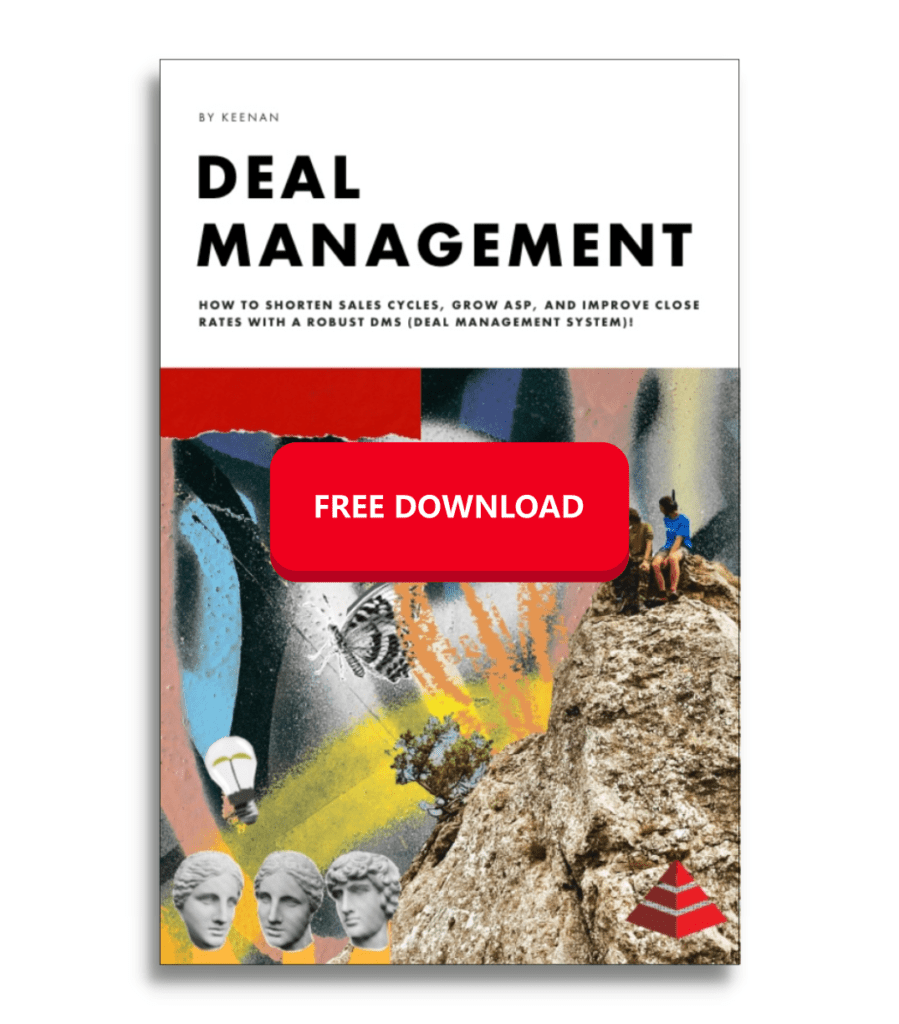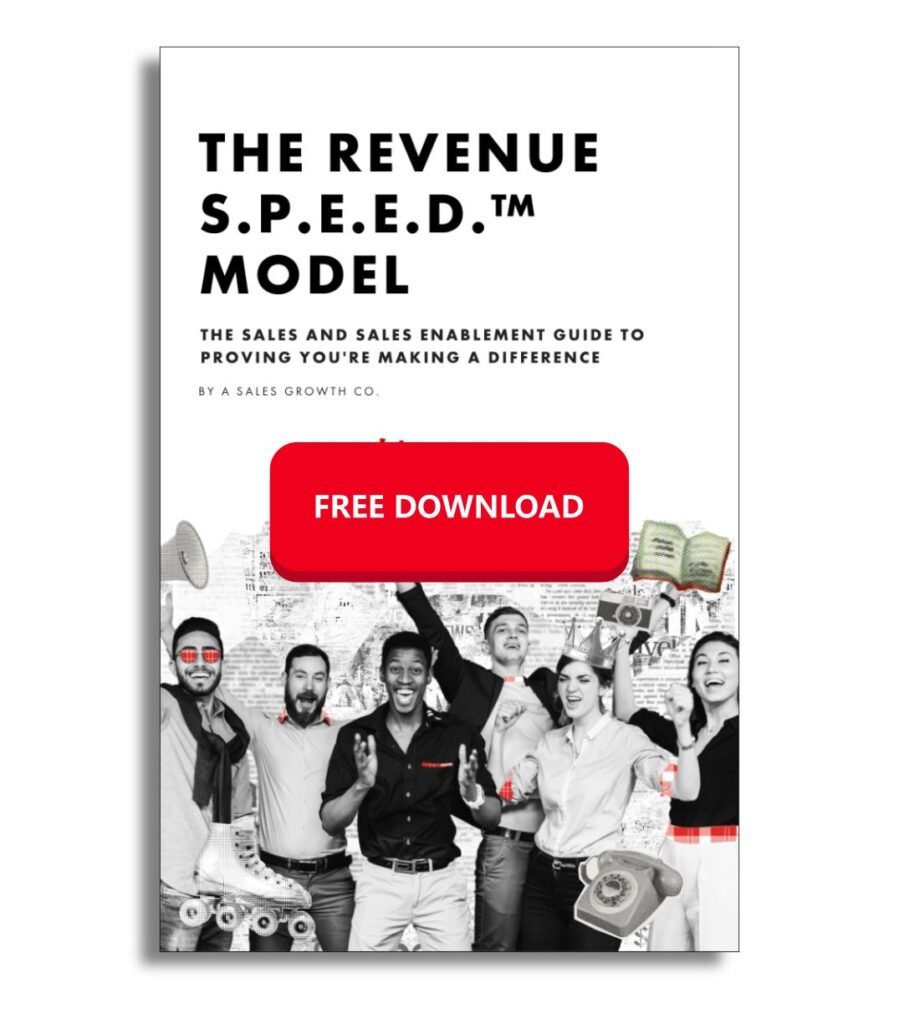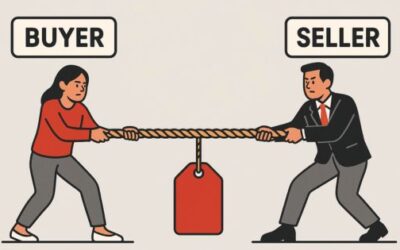It’s a sales manager’s job to know whether or not a salesperson is going to make quota. Part of that process is understanding what deals are real and will close, and which won’t.
Deal reviews are a critical tool for sales managers to determine the probability of a salesperson’s success in making quota. Unfortunately, deal reviews can be all over the place. We’ve all sat through our share of deal reviews, have run our share of deal reviews, or heard the horror stories of shitty deal reviews and we know: deal reviews rarely follow any formal structure or continuity.
Deal review is a fail in most sales circles.
Deal reviews are one of those things that seem to get little attention when it comes to sales management and sales organization productivity. Yet, understanding where a deal is and being able to provide valuable guidance of a deal are critical elements of a successful and productive sales team.
Why are deal reviews such a mess and rarely deliver on their value?
Because sales managers don’t know how to run them, and salespeople are generally full of shit and overly optimistic. Let’s just keep it real, you all know I’m right here.
Salespeople have happy ears. They interpret everything and anything they hear as a positive sign that the deal’s gonna close. The client loves us. The prospect said they are going with us. They were excited about our product, etc. These useless, overly optimistic boasts provide ZERO value to a sales manager or to the assessment of the deal and its probability of closing.
To make matters worse, most sales managers don’t know how to run a deal review. They ask high-level questions like: Is the deal going to close? What’s going on with this deal? When is the deal going to close? How do you know? Are you talking to the decision maker? Is budget approved, etc.?
After about 4 or 5 of these lame questions, combined with the lame salesperson’s answer from above, everybody walks away happy, feeling good the deal is going to close. Rarely does the manager or the salesperson question the probability of a win.
And this is how most deal reviews play out. Every deal is going to close. No deal is in jeopardy, and everyone is happy.
But then the end of the quarter comes, and the wheels fall off. The deals don’t close. Deals “slip” into the next year or quarter and nothing happened the way things were supposed to happen. To make things worse, everyone acts surprised.
Being surprised a deal isn’t won is a massive failure in most cases. Salespeople and sales managers can and should know (early!) if a deal is going to be won and what the probability is of winning.
To make sure sales managers and salespeople get ahead of the sale and can more accurately predict the strength of a deal and it’s probability of closing, every one of these eight questions should be asked in every deal review.
The Eight Questions to Ask in a Deal Review
What problem(s) is the prospect or buyer trying to solve? (Why do they want to buy?)
The purpose of the this question is to make sure the salesperson understands what the intrinsic motivation is for changing or buying something new is. Companies/people don’t buy products or services, they buy things to solve problems, to improve their current state. If your salesperson doesn’t understand what problem the prospect is having, then they can’t effectively sell them anything.
What’s the impact of those problems on the business?
It’s not enough to know what the problem is, you also have to know the impact of the problem on the business and it MUST be QUANTIFIED. The impact to the business provides insight to urgency, and return, opportunity, etc. If the impact of the problem on the business is small, and the rep is unaware, they could be pushing something that will never be sold, as the value to the buyer doesn’t exist. (I see this a lot).
What happens if they don’t buy or solve the problem?
This question is, in many ways, the inverse of the second question. It ensures the salesperson is zeroed in on the right selling criteria. By understanding what happens to the company/buyer if they choose not to solve the problem, the salesperson understands the cost of sticking with the status quo and can assess if that is a palatable alternative.
What are they trying to accomplish?
I call this the future state. The future state is the desired vision buyers have to change. It’s why they want to solve the problem. It’s the carrot. The problem is the pain or stick; the future vision is the carrot.
If a salesperson can’t cleanly and clearly articulate what the prospect wants to achieve by changing and how they will measure success, they have little information to move the deal forward. If absent, it also doesn’t allow you or the salesperson to measure the value of your solution. When you don’t know the value of a solution, you can’t judge the probability of it closing.
How are they doing “it” today?
Too many salespeople are content with what is going on in a customer’s organization. They don’t spend enough time understanding “how” they are doing it. How is a critical differentiator. Everyone drives a car, but not everyone drives a car the same way.
Same in business, your prospects may be using a similar offering, or may have processes that do what you do, but rarely do they do it the same and that’s how you’re able to demonstrate value. By forcing a rep to understand how their prospect is doing what they’re currently doing, you can determine how much value there is in the deal to do it differently. Less value, less opportunity/desire to change.
What are the decision criteria?
It’s critical that the salesperson and the sales manager know what criteria the buyer is going to evaluate and make their decision. By understanding what criteria are being judged and comparing that to your solution, salespeople can understand how well they fit and also have the ability to influence the decision. Again, this is the type of information that allows sales leaders to accurately understand the probability of a deal closing.
What’s the decision process?
You have to know how the buyer is going to buy if you expect to know if you’re going to win the deal AND when. Who is involved, what are their expectations on demos and trials, and evaluating the competition, and, and, and . . . It’s easy to forget that the buyer has their process for buying, and we need to know it to assess when and if a deal is going to close.
What’s the next yes? [video on next YES!]
This last piece is critical. This is the part of the deal review that uncovers your salesperson’s deal strategy. The next yes is the sale within the sale, what the salesperson is trying to get from the buyer. It’s the thing that get’s the deal closer to close. A rep should ALWAYS be working towards getting the buyer closer to closing the sale and if they aren’t, they are not selling.
The next yes is the sale within the sale. It’s what the rep needs to get the buyer to commit to that moves the sale along. It could be agreeing to a meeting. It could be getting the client to share their customer records. It could be getting the buyer to introduce you to the CEO. It could be getting the buyer to agree to a proof of concept.
Whatever it is, the salesperson NEEDS to be working on getting the client to commit to something that illustrates their interest and desire to move closer to buying. Without it, your salesperson is simply burning time.
Deals close for a few reasons and only a few reasons
- The prospect has a big problem they want to fix
- They want to fix it because it hurts; the pain is too unbearable
- They want to get to a better place. They know there is a better world out there if they fix it, a better world they can live/work in.
- The cost (time and money) align with the change and what they’ll get if they change. It’s worth it
- They believe they the desired future state is achievable
That’s it. That’s what’s behind a prospect’s decision to make a change. Therefore, a deal review only needs to ensure those five elements are present at any time and that the salesperson is making sure your solution answers all those questions. If you ask any other questions or set of questions that don’t help you assess where the prospect is with these five areas, it’s a red flag that you’re headed in the wrong direction.
Start running your deal reviews with an understanding of how your buyers buy. Use the eight questions we discussed to flush out the problem the customer is having, how that problem is affecting them, why they need to change, and how the impact of the problem is being measured. Once you have this information and can understand what the prospect is going to evaluate and how they are going to decide, the rest is a cake walk.
Deal reviews aren’t that complicated. We just make them that way. Don’t spend more time on them, just spend smarter time on them. The map is laid out right in front of you. Simply follow it.





That is a good tip especially to those fresh to the blogosphere. Simple but very accurate information… Thanks for sharing this one. A must read post!